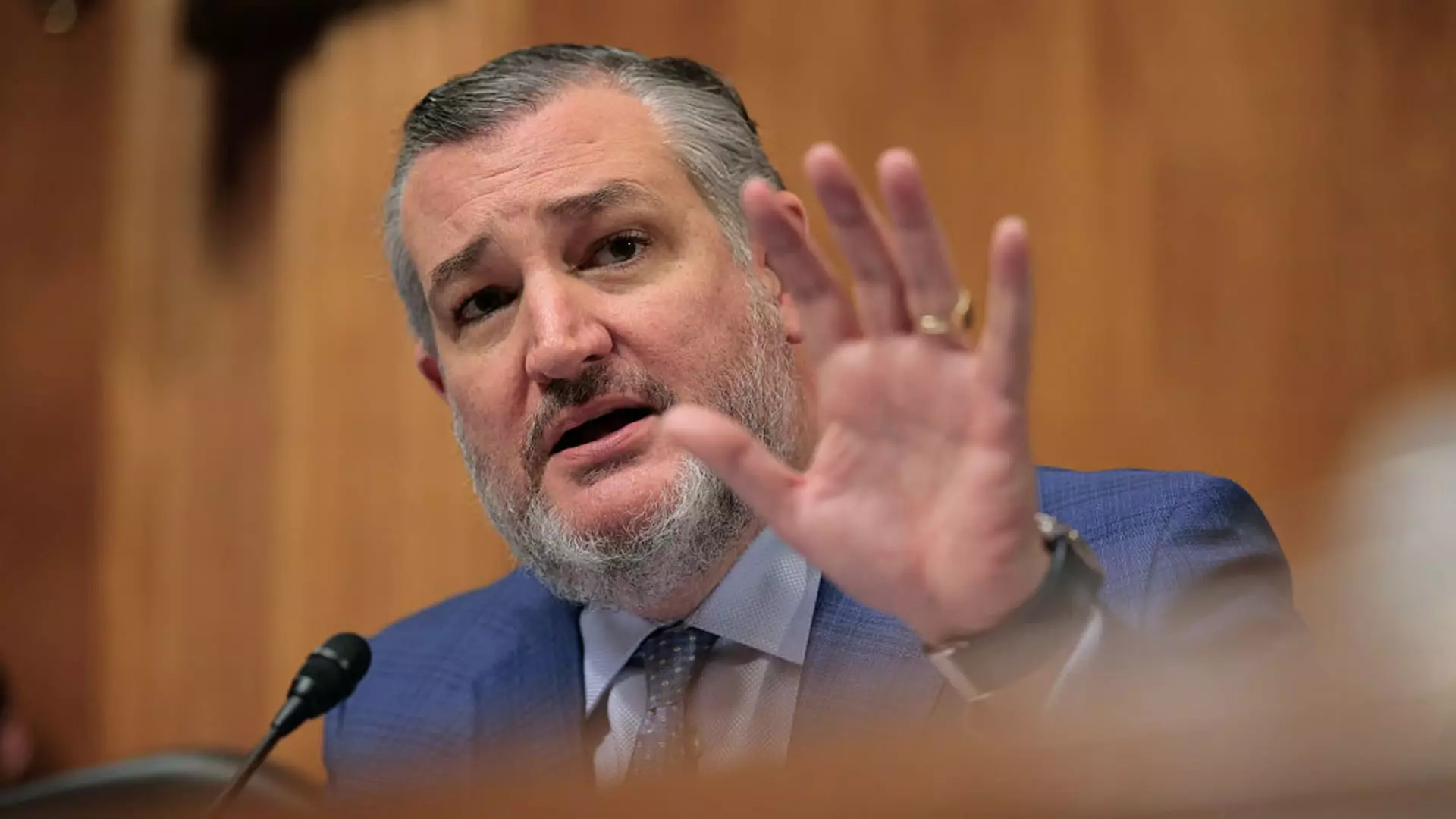In recent events, we are witnessing a disturbing shift where political figures and government agencies appear to prioritize control over free expression under the pretext of safeguarding public interests. The controversy surrounding FCC Chairman Brendan Carr’s comments about late-night host Jimmy Kimmel exemplifies how government authority can be weaponized in the name of accountability, yet risk undermining the core principles of free speech that democracy relies on. This isn’t merely a clash of opinions; it signals a potential erosion of media independence and a dangerous precedent where political and regulatory power threaten to dictate what media outlets can or cannot broadcast.
The open threats made by Carr, suggesting that ABC could lose its license over a satirical remark targeting a conservative activist, reflect a troubling trend toward authoritarian-like tactics disguised as regulatory oversight. Such remarks echo the language of intimidation rather than constructive dialogue, casting a dark shadow over the independent judiciary of the airwaves. When regulators or politicians wield their authority to silence dissenting voices—regardless of how provocative or controversial—the foundation of a vibrant, pluralistic media landscape is at risk. Society should be wary of this creeping authoritarianism, which undermines the very freedoms that secure democratic debate.
What makes this concern even more pressing is the political context in which these exchanges take place. While figures like President Trump have expressed approval for the suspension of Kimmel’s show, centering this issue on partisan lines only exacerbates the polarization. However, the real harm isn’t about supporting or opposing specific personalities; it’s about the broader principle that the government should not become a censorship enforcer. This crisis isn’t confined to a single incident; it’s a symptom of a deeper issue — the gradual encroachment of state power into the independent realm of media regulation, threatening to turn broadcast licensing into a tool of political retribution.
The Power of Media and Its Vulnerability to Political Manipulation
Media outlets hold immense responsibility—they shape public discourse, influence opinions, and uphold the accountability of those in power. When regulatory bodies or politicians threaten to revoke licenses based on content they personally dislike, it shifts the focus from content governance to overt censorship. The implications are chilling: media organizations may feel pressured to self-censor or avoid controversial topics altogether to avoid government retribution. This creates a dangerous environment where the very essence of free and open journalism is compromised.
The episode reveals a fundamental weakness in the current regulatory framework. Instead of fostering an environment where diverse opinions can coexist and thrive, it risks transforming broadcast licenses into bargaining chips in political disputes. ABC’s decision to pre-empt “Jimmy Kimmel Live!” might be a response to external pressures, but it sets a concerning precedent: that media outlets can—and should—be politically sanctioned based on their content. This not only stifles creative expression but also polarizes the media landscape, where certain voices are marginalized simply because they challenge dominant political narratives.
It is crucial to recognize that the power dynamics at play here favor well-funded political interests seeking to silence dissenting voices. The assertion by Carr that ABC’s license comes with an “obligation to operate in the public interest” can be misused to justify arbitrary censorship. Such claims ignore the multiplicity of public interests—ranging from free speech advocates, journalists, minority voices, and political moderates—that rely on an independent media environment for a healthy democracy.
The Role of Center-Left Principles in Safeguarding Media Freedom
From a center-wing liberal perspective, the core issue isn’t partisan but philosophical: the imperative to uphold free speech as a safeguard against authoritarian overreach. While some might sympathize with concerns about inflammatory or irresponsible content, the solution must never be government censorship. Instead, it calls for a reinforced commitment to transparency, accountability, and responsible media regulation that respects the boundaries of free expression.
Open debate and criticism are the tools that hold those in power accountable, and silencing journalists or entertainers under political pressure erodes these safeguards. A healthy democracy depends on a free, independent press—one that challenges and checks power rather than cowering before it. When government officials threaten to revoke licenses or intimidate media outlets, they are not exercising authority—they are demonstrating authoritarian tendencies that could compromise the democratic fabric.
Furthermore, the approach should be rooted in media literacy and societal resilience, not censorship. Society should empower viewers and listeners to critically assess content without fear of government reprisals. While responsible media regulation is necessary, it must be principled, fair, and designed to preserve the diversity of voices rather than serve as a tool for political control.
In resisting unchecked government interference, a balanced center-leaning stance insists on defending the fundamental rights of free expression, ensuring that media remains a battleground of ideas—an essential element for a vibrant and resilient democracy. Caving to political intimidation through regulatory threats weakens that battleground and, ultimately, erodes the democratic values we hold dear.


Leave a Reply